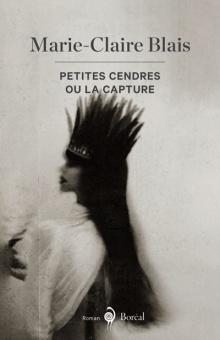Foreign Rights
- // New titles
- // Fiction
- // Non-fiction
- // Youth
A small town in the American South, just before the first light of dawn. A policeman on horseback approaches a homeless black man who’s sleeping in the street. The old man is beaten down by misery and drugs. He berates the cop furiously, rattling off a litany of injustices his ancestors suffered at the hands of white people. The policeman only wants one thing: to arrest the man and put him in jail for the rest of the night. What right does this old man have to harangue him? After all, doesn’t a police officer represent the order to which all citizens are subject? Then a transvestite happens by, on the way home from a bar. He tries to reason with the policeman. When he sees the cop reach for his holstered gun, he shields the homeless man with his body. He tells himself the cop would never dare shoot a poor, defenceless man. But is he really sure? This is an America scarred by social inequality, racial injustice and war wounds. Marie-Claire Blais’ powerful, inimitable style shines brightly in this ode to cultural and sexual difference. As always, she is perfectly in tune with her time.
RECEPTION
“A poetic and mastered universe which belongs totally, entirely to Marie-Claire Blais. I read it like you read poetry, like slam. There is rhythm. Marie-Claire Blais is our Patti Smith."
Radio-Canada
“She bears a beautiful testimony to trans prostitutes, to the black community and to marginalized people in general since always. It is a fight for dignity. The feather becomes a sword. She writes as if sometimes blood flows. "
La Métropole
“In this sinister portrait of an America adrift, frozen in mistrust and intolerance, Marie-Claire Blais manages to make horror and hope coexist, recalling that love and solidarity will always be sovereign in the face of mistrust and ignorance. “
Le Devoir
“Through the vigorous exchanges between a black itinerant worn out by misery and drugs, a white policeman and a transvestite, she displays all the racism and social inequalities that darken the world. “
Le Journal de Montréal
“In the eternal movement of the waves, there is like a promise, at least, a desire for renewal. Marie-Claire Blais remains this unique novelist, this benevolent mother who, after all her stories and like Petites Cendres here, does not despair. “
La Presse
Radio-Canada
“She bears a beautiful testimony to trans prostitutes, to the black community and to marginalized people in general since always. It is a fight for dignity. The feather becomes a sword. She writes as if sometimes blood flows. "
La Métropole
“In this sinister portrait of an America adrift, frozen in mistrust and intolerance, Marie-Claire Blais manages to make horror and hope coexist, recalling that love and solidarity will always be sovereign in the face of mistrust and ignorance. “
Le Devoir
“Through the vigorous exchanges between a black itinerant worn out by misery and drugs, a white policeman and a transvestite, she displays all the racism and social inequalities that darken the world. “
Le Journal de Montréal
“In the eternal movement of the waves, there is like a promise, at least, a desire for renewal. Marie-Claire Blais remains this unique novelist, this benevolent mother who, after all her stories and like Petites Cendres here, does not despair. “
La Presse
24.95 $
Ce que la presse en dit
« Un univers poétique et maîtrisé qui appartient totalement, entièrement à Marie-Claire Blais. J’ai lu ça comme on lit de la poésie, comme du slam. Il y a du rythme. Marie-Claire Blais, c’est notre Patti Smith à nous. »
« Dans ce sinistre portrait d’une Amérique à la dérive, figée dans la méfiance et l’intolérance, Marie-Claire Blais parvient à faire cohabiter l’horreur et l’espoir, rappelant que l’amour et la solidarité seront toujours souverains devant la méfiance et l’ignorance, et que cette lutte douloureuse qu’on appelle la vie en vaut le coup pour les éclairs foudroyants de beauté qui la traversent.»
Anne-Frédérique Hébert-Dolbec, Le Devoir
« Elle rend aussi un beau témoignage aux prostitués trans, à la communauté noire et aux marginaux en général depuis toujours. C’est un combat de dignité. La plume devient une épée. Elle écrit comme si le sang coulait parfois... Et si je vous disais: une écriture qui s’inscrit dans le temps d’un autre Temps ? »
Ricardo Langlois, La Métropole
« À mon grand désarrois, c’était la première fois que je la lisais. Je vais lire toute son œuvre. C’est un style ! C’est d’une richesse incroyable. Quel temps que j’ai perdu à ne pas lire Marie-Claire Blais. »
« À travers les échanges corsés entre un itinérant noir usé par la misère et les drogues, un policier blanc et un travesti, elle étale tout le racisme et les inégalités sociales qui assombrissent le monde. »
Marie-France Bornais, Le Journal de Montréal
Les Éditions du Boréal
3970, rue Saint-Ambroise, Montréal (Québec), Canada H4C 2C7
Tél: (514) 287-7401 Téléc: (514) 287-7664
Tél: (514) 287-7401 Téléc: (514) 287-7664
Les photos des auteurs ne peuvent être reproduites sans l'autorisation des Éditions du Boréal.





